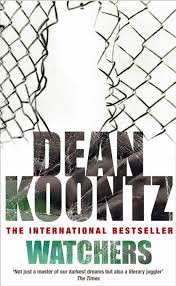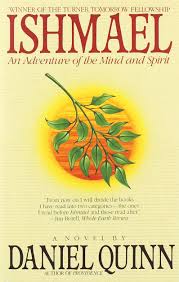Staff Picks, Part IV: Josh
Monday, Jun 29, 2015
This is the final installment in our series of blogs featuring the favorite books of the Underground Books staff. Here are Josh's favorites!
At about age 12, I was probably too young to be reading Koontz. Like Stephen King, he’s a master of suspense and horror. Not usually my genre of choice today, Watchers was one of the first books to really ignite my love of reading. When the protagonist, Travis, encounters two genetic experiments escaped from a government lab, he’s drawn into a dark and dangerous tale of adventure and secrecy. The story is most famous for its exceedingly intelligent and lovable golden retriever character, Einstein. A definite page-turner and “beach read” that won’t be too taxing for the already mentally exhausted.
Chronicles Dragonlance Series by Margaret Weis & Tracy Hickman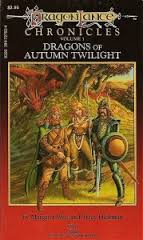
This epic fantasy novel franchise is what inspired my teenage obsession with dungeons & dragons and role playing games (and eventually introduced me to Tolkien as well). I credit (blame?) these worlds of elves, dwarves, and magic with later inspiring me to question the world, and eventually study philosophy and religion in college. The heroes in the world of Krynn, introduced in Dragons of Autumn Twilight, have since spawned over 190 books and games. If you’re one prone to getting addicted to a series, and then having to read all of them – beware these books!
When I read Ishmael at age 16 or 17, it blew my mind. An older friend (herself studying philosophy in college, like I eventually would) gave it to me, and it forever changed my perspective on the world. It examines the mythological thinking at the heart of modern civilization, its effect on ethics, and how this relates to sustainability and societal collapse on the global scale. The novel uses a style of Socratic dialogue to deconstruct the notion that humans are the pinnacle of biological evolution. It posits that anthropocentrism and several other widely accepted modern ideas are actually cultural myths and that global civilization is enacting these myths with catastrophic consequences. As a work of fiction, it will leave something to be desired – consider this purely a philosophical/historical read for exercising your brain and examining our culture’s basic ideas.
Tropic of Cancer by Henry Miller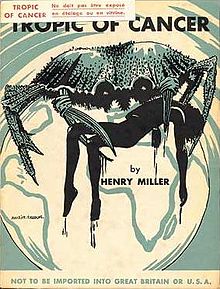
Another one read initially as a teenager, it was given to me by my older brother as if it was some kind of dangerous and sacred object. Famous for its candid sexuality and the 1960’s free speech trials it aroused (ha!), Tropic is the semi-autobiographical tale of Miller living as a nomadic-bohemian-expatriate in Paris in the early 1930’s. The book meanders around and among Miller and his musician, artist, and writer friends as they drink and carouse. As a story it really goes nowhere linear, with a lot of stream of consciousness chapters leading toward big epiphanies, meditations on the human condition, and social critiques. If you can overcome the pretension, it’s a fun and dirty romp through 1930’s Paris, with a good dose of lyrical philosophy and social criticism.
God is Red: A Native View of Religion by Vine Deloria
This book was the primary textbook of my college course “Introduction to Native American Religious Traditions” at Western Kentucky University. God is Red is not just an introduction to native religious ideas, it is an in-your-face challenge to Western Christianity. It details the hardships faced by Native Americans as their country was quickly flooded with foreigners eager for land and other resources. Deloria links the anthropocentrism of Christian orthodoxy and subsequent American economic philosophies with increasing environmental upheaval. Deloria also explains how religious views are rooted to "place" as opposed to being universal. God is Red is a challenging and important read that transformed my understanding of all religions.
Still Life With Woodpecker by Tom Robbins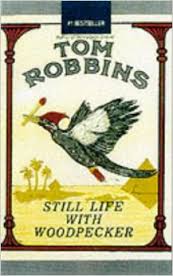
During my four (okay, almost five) years as a philosophy undergraduate, I read only nonfiction. After graduating, the first work of fictional pleasure reading I picked up was Tom Robbins’ Still Life With Woodpecker. It concerns the love affair between an environmentalist princess and an outlaw. The novel encompasses a broad range of topics, from aliens and redheads to consumerism, the building of bombs, romance, royalty, the moon, and a pack of Camel cigarettes. The novel continuously addresses the question of "how to make love stay" and is sometimes referred to as "a postmodern fairy tale". Still Life is a fun, easy read, but still full of witty, thought-provoking, and quotable aphorisms.
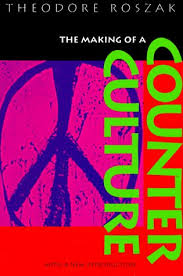 The Making of a Counterculture by Theodore Roszak
The Making of a Counterculture by Theodore Roszak
A “counterculture” is a subculture whose values and norms of behavior differ substantially from those of mainstream society, often in opposition to mainstream cultural mores. The term is credited to Theodore Roszak, who originally published his chronicle of the 1960’s European and North American counterculture in 1969. The book captured a huge audience of Vietnam War protesters, dropouts, and rebels--and their baffled elders. Theodore Roszak found common ground between 1960s student radicals and hippie dropouts in their mutual rejection of what he calls the technocracy--the regime of corporate and technological expertise that dominates industrial society. The book satisfied my personal preoccupation with better understanding the dramatic social transformations of the 20th century.
Breakfast of Champions by Kurt Vonnegut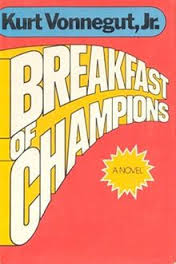
Vonnegut’s 1973 novel is set in the fictional town of Midland City, and is the story of "two lonesome, skinny, fairly old white men on a planet which was dying fast." Breakfast introduced me to the offbeat, brilliant humor of an author who thinks like a kind of zany alien anthropologist. Illustrated throughout with Vonnegut’s own childish drawings, the book also explores serious and troubling aspects of U.S. history by providing simplistic explanations of things like racism, oppression and inequality without the contextual explanations that are often used to excuse these trends.

The Geography of Nowhere: The Rise & Decline of America’s Man-Made Landscape by James Howard Kunstler
This pop history of urban planning and architecture in America opened my eyes to the ways our built environment has contributed to so many of the social problems we face today. Kunstler was an early critic of suburban sprawl and an advocate of “New Urbanist” design, emphasizing walk-able & bike-able neighborhoods and mixed use village-style planning. Part of my love for downtown Carrollton was explained to me by this book, celebrating the human scaled intimacy of pre-automobile urban village design. Kunstler’s biting sense of humor makes learning about the dark and sad history of America’s urban planning a less bitter pill to swallow.
Pronoia is the Antidote for Paranoia by Rob Brezsny
Pronoia is the suspicion that the universe is a conspiracy on your behalf. Rob Brezsny, one of America’s most popular astrologists and the author of the “Free Will Astrology” column appearing in most of the country’s alternative newsweeklies (like Creative Loafing), persuasively argues that we attempt to go along with the Universe’s good intentions. He uses witty parables, tender rants, cultural riffs, pagan wisdom, and lively rituals to make a case for a cagey optimism that requires a vigorous engagement with the dark forces. He asks us to rethink life as a sublime game created for our amusement and illumination. It’s easy to dismiss Pronoia as ridiculous new age fluff, but for those with less deeply ingrained cynicism, it can be a playful and enjoyable breath of fresh air. In fact, I credit it with the inspiration to be foolish enough to open a bookstore!


